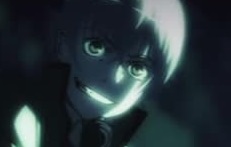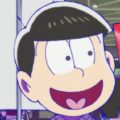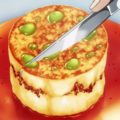When the Promised Flower Blooms, all is Beautiful- Maquia

This year so far has not been good moviewise for anime, as so far the only movie I had seen was the middling “Fireworks” Of course, I would have also seen the “Free!” movie, had it not been a one-night-only showing in Chicago on a Wednesday night way back in March. However, 2018 had a second chance to impress me, and I decided to go into “Maquia: When the Promised Flower Blooms” cold turkey. So what is one to expect from the first movie directed by Mari Okada, a woman more known for her the script writing and series composition of series like “Kiznaiver” and “Gundam Iron Blooded Orphans?”
They say “don’t judge a book by its cover,” but from the very beginning, one can’t help but be utterly captivated at “Maquia’s” visuals. Vibrant, rich, and detailed, the series does a fantastic job at creating majestic scenes and settings that come to life and grab viewers by the eyeballs. One soon realizes that this is a series set in a fantasy realm, but the fantasy elements are so gracefully interwoven that one sometimes has to pinch oneself to remember that, even with the presence of the flying dragons known as Renato. There is moderate to heavy saturation in the colors but only slightly overdone so that while it bleeds, it draws the viewer in and only slightly overpops. The scenery also is accompanied by fantastic lighting, which is more than icing on the cake. It is the icing, decorations, and messages on the face of the cake and perfectly accompanies the scenery and drawings to create something truly mystical, whether the light is from the sun or a candle. From main character Maquia’s hometown of the Iorph people to the village of Helm and the city of Dorail, one not only is thrown into the scenery, but instead one also feels the mood, the sights, the sounds, and even the smells of the environment.
Now, the mood of the series is at odds with the ritzy and luxurious scenery, as not soon after the film’s beginning, the Iorph people are soon attacked by their neighbors the Mezarte, who seek to learn the secret behind what makes the Iorph people legendary: their longevity and significantly slower aging process. Main character Maquia is soon orphaned and separated from her friend, Leilia, who becomes a Mezarte prisoner. However, the main storyline and themes so not get started until Maquia, in escaping her homeland, finds a deceased woman still clutching onto her newborn son, who Maquia adopts and raises as her son Ariel. In doing so, she has defied one of the Iorph’s laws: do not fall for outsiders emotionally as it will only cause true pain, suffering, and loneliness [due to the Iorphs’ aforementioned longevity].
What follows is a split storyline, with the focus on Maquia raising Ariel as her son, interwoven with the tale of Leilia being raised as the wife of a Mezarte member of royalty. There are few characters but they all are developed in such a way that the reasoning behind their actions is justifiable and nearly every single one is memorable for their actions, for better or worse. The separation between protagonist and antagonist is quite nonexistent, as each is looking out for the future of someone else first rather than him or herself. There are overtones of “Wolf Children” in this story, but while “Wolf Children” involves a linear timeline and compare/contrast structure regarding how Yuki and Ame grow up to have different destinies, “Maquia” uses distinct time skips with a greater focus on the waxing and waning relationship between Maquia and Ariel. This difference in focus is perhaps the biggest difference between “Wolf Children” and “Maquia,” and is a bizarre mixture of heartwrenching and heartwarming. It touches on how one naturally drifts apart from their parental figure as one grows up, and the usage of time skips here work in the movie’s favor as one can compare and contrast how character relationships evolve. Throw in elements of childbirth and childrearing into the mix throughout the movie and you have a dodecahedron of emotions, feelings, and emotions. However, it’s all balanced out, and each element of love, hate, pain, pleasure, happiness, and sadness peacefully coexist with its counterpart and tug the story out to the fullest extent but does not overstretch it. What really sets the story apart, however, is just the depth that it plays out at. One’s feelings towards it can’t simply be expressed or discussed with just a couple of words or phrases. Instead, like “Your Name,” it is a series to have a long discussion about, in the right setting, like during a book club over cake and coffee.
Now, what ties all of this together is a central Iorphian theme: the Hibiol, a special cloth which they weave in order to tell stories and send messages to other Iorphians. It binds large parts of their society together and is a part of their lifestyle, and while the cloth is seen only in certain scenes for short periods of time, these scenes are important to the movie’s plotline, as can be seen in one particular scene where Ariel and Maquia enter into an argument. Instead, the Hibiol’s usage as a thematic bind is much more prominent. It shows in the connections of Maquia and Ariel, in Maquia and Leilia, and in Leilia with her captors and other Iorphians, amongst other connections. Despite dual storylines and a larger emphasis on one, the passage of time affects both storylines and the film does a fantastic job of highlighting events that concurrently take place. The thematic bind also occurs in how each of the time skips all bind into one of two central storylines, resulting in linear, smooth progression rather than something fidgety or jumpy. Despite the long passage of time and individuals drifting apart due to differing points of view, characters still remain connected to each other in everlasting binds, all the way up to the movie’s conclusion.
Now, the conclusion of “Wolf Children” was one of the most difficult conclusions in an anime movie of recent memory, along with that of several Makoto Shinkai films and Grave of the Fireflies. “Maquia” can join the ranks of these films as well, and ties everything together brilliantly. Despite its lack of open-endedness a la “Your Name,” the conclusion is done with the same level of technical skill, and again, the half-heartbreaking, half-heartwarming emotion from earlier in the film presents itself. Overall, then, this film impresses, far beyond its expectations. The story is exquisite and the structure technically complex, yet its plotline execution is nearly flawless. The characters are each fleshed out excellently, are portrayed consistently, and are believable and likable, with top-notch chemistry. The scenery and lighting are exquisite, and the few action scenes keep the plot moving with the smooth animation providing a great sense of scale and depth. Keeping in mind this is Mari Okada’s first work as a director, and everything just gets a larger sense of grandeur. This is beyond a job well done. This is a masterpiece, and I look forward to her next work and for the film to get released on disc in the United States. Until then, have a look at the trailer:





